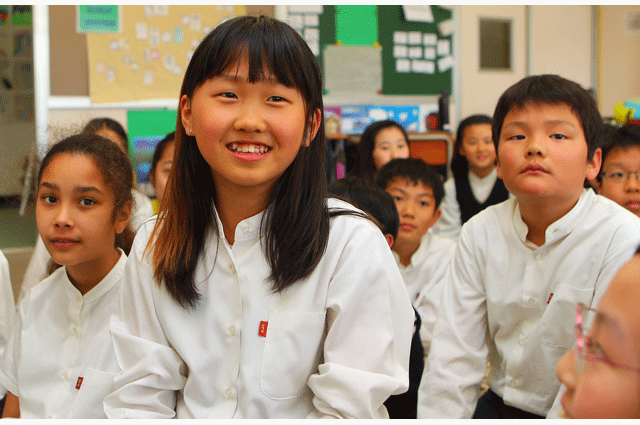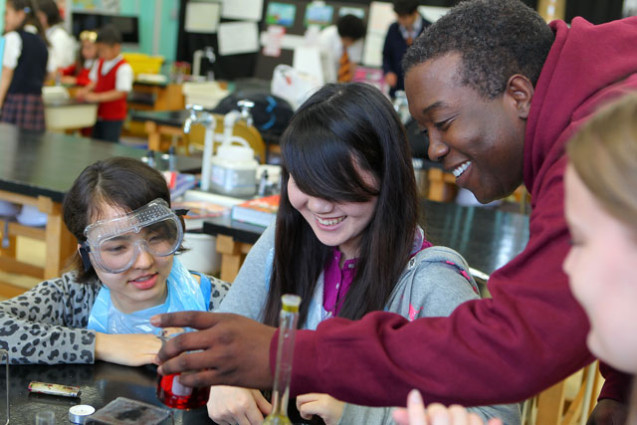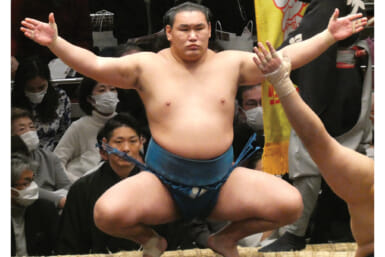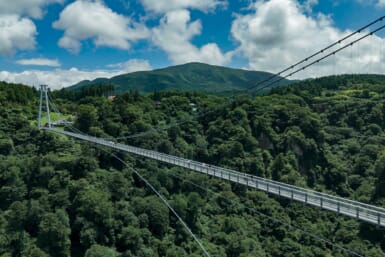How Aoba-Japan International School (A-JIS) is introducing unique methods to help build communities and prepare children for success and happiness in an unknown future.
As the world moves towards an increasingly uncertain future, helping learners become empowered problem solvers and innovators is essential. To that end, Aoba-Japan International School (A-JIS) is paving the way for a unique approach to education. We chat with the school’s Secondary Principal, Robert Thorn, and the Director of Aoba-Japan Extension (AJE), Greg Culos, who is responsible for community and external programs, to find out more.
How did Aoba’s different approach to education evolve?
Robert: Many schools have mission statements with big ideas, such as making an impact on the world one day. We said, “Why can’t we do that now?” We began to ask ourselves, and the kids: “What is the point of education?” The kids came up with things like, “It’s to prepare us for success and happiness in an unknown future.”
That’s insightful coming from schoolkids…
Robert: Exactly. We took time to reflect together on that. We then looked at how a school and an education system can do this; how does a learner go into an unknown future and come out happy and successful? To this end, we have learners examine positive and negative aspects of school. They look at the relationship between teachers and learners and, through discussion and exploration, propose how positive change can be made. They begin to see how to make changes in their communities.
Greg: AJE was designed with the notion that we create opportunities for our kids to become inspired to learn about, in particular, things that inspire them. It’s a simple notion, but it breeds relevancy. Consequently, we strive to ensure that AJE programs are experiential first.
Robert: We give more time to the topic of global leadership than we do to the traditionally important subjects, with the notion that better holistic learners will learn content knowledge better, and apply it better.
So global leadership is part of the curriculum?
Robert: Yes, teachers challenge learners about certain topics, and set up opportunities for them to practice leadership and coaching skills. The idea is to nurture critical approaches to understanding expected norms and behaviors, and to generate learner-led forums and actions in which they can present, test, question, and perhaps modify notions regarding “global leadership”: What is entrepreneurial spirit? What defines a happy family life? What is success? What am I doing now to bring positive change to our community?
Greg: We may provide controlled situations that can lead to conflict in life, and then problem-solve those issues with others in a responsible way. So, they become attuned to the roots of what causes problems in life and how those instances may be managed.
Robert: In many schools you get teachers who love the subject they teach, but half the kids they teach think of it as a waste of time. Wouldn’t it be better if young people understand that they’re going into any classroom to become better learners and leaders – and that this outcome is possible even within the context of any subject?
How do you empower the teachers?
Robert: A good example is a course our teachers took with Professor Philippe Rosinski, who developed a system called Global Coaching. His approach leads to a more rounded coach. That said, we also realized that, as teachers, we’re only just learning these skills, so we thought, let’s go on a journey with the kids. In this way, we are helping to build our community and relations between educators and learners that empower both to develop the other.
How else are you helping to build community?
Robert: To be social entrepreneurs, you first have to understand your impact on society. So we’re collaborating with local schools. One of the events we’re trying to organize is getting teenagers and retired people to come together to make things – anything from conversation to calligraphy.
Greg: Families in Japan reach out to international schools to provide their children with learning paths that are otherwise not available to them: creativity, independence, and critical thinking being among those. Both our mainstream and AJE programs offer these experiences. We also host more and more international students seeking the same opportunities to discover the world in different ways. As a result, all participants can experience authentic instances of socio-cultural difference.
More info at www.japaninternationalschool.com
Sponsored Post










